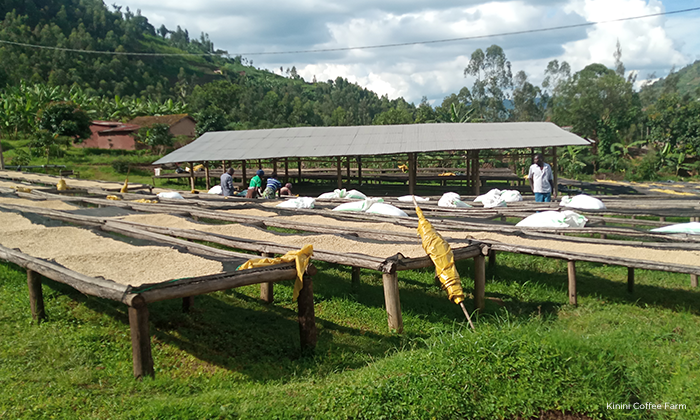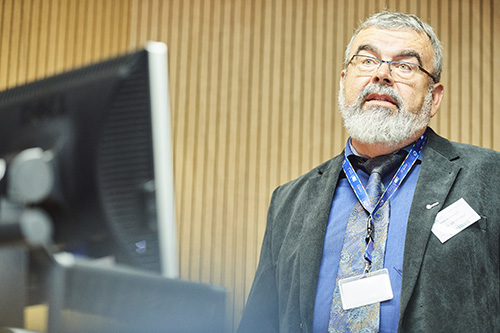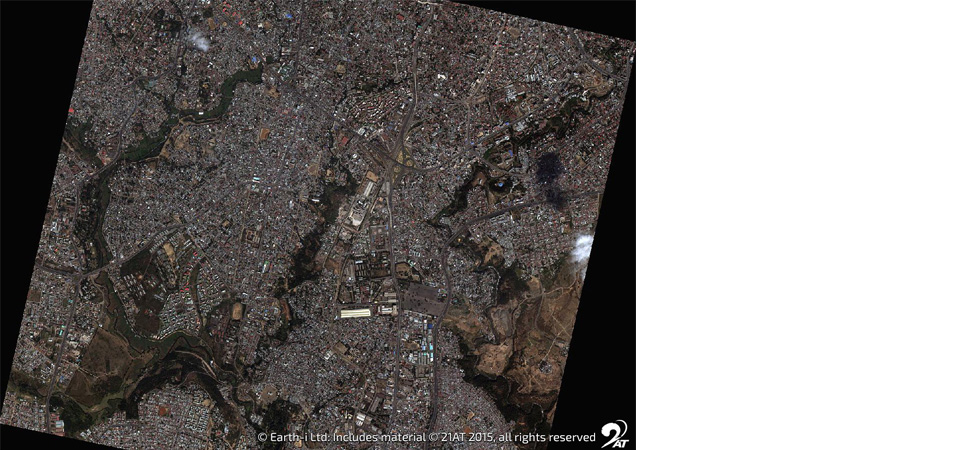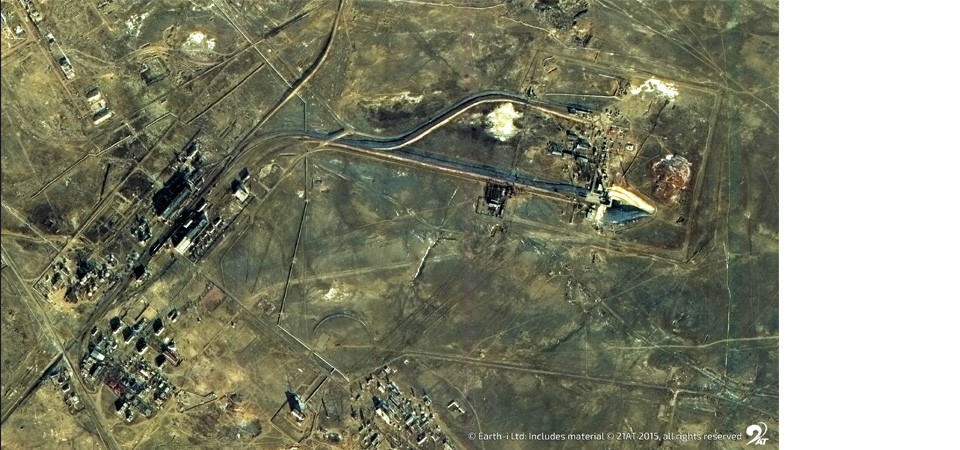13th May 2020 – Though the COVID-19 pandemic is primarily a public health emergency, its effects ripple across all aspects of life – not least in global supply chains for agricultural commodities we used to take for granted. ACCORD East Africa Project Manager, Amos Wanyiri, looks at the impact of the pandemic on coffee producers in the region.
There is growing evidence that deployment of remote agricultural technologies and SMS based solutions, could offer a range of important opportunities to address the impacts of COVID-19 on smallholder agricultural production. Solutions that bridge information gaps and link farmers to sources of inputs and crop management advise, could help reduce the impacts of control measures related to COVID-19.
Coffee consuming markets are in lockdown
The main coffee importing and consuming markets in Europe, North America and Asia are in the middle of the COVID-19 crisis. Governments have put measures like social distancing and lockdowns in place. These have had a huge effect on cafés, micro-roasters, restaurants and other out-of-home outlets. It is these specialty coffee outlets that have driven the increase in premium coffee consumption in recent years.
A general decrease in coffee consumption is now expected, due to projected global economic recession in 2020. In addition, we could expect to see a shift from premium out-of-home coffee consumption to at-home cheaper coffee products. In the last one to two months, we have experienced stockpiling by coffee importers over fears of lockdown due to COVID-19.
According to a recent report from the BBC, there is generally a drop in orders in the past month and a general sense of market uncertainty by farmers in key growing countries, not least producers in East Africa that depend much more on the premium, specialty coffee market.
Small scale coffee production and trade in Rwanda and Kenya facing challenges due to the pandemic
The ongoing COVID-19 presents a significant challenge to East African Countries (EAC) economies due to its strong links with the world economy in terms of trade, business and investment according to the East Africa Business Council (EABC)
Across East Africa, all countries remain on high alert for COVID-19. In Kenya and Rwanda, the governments have imposed partial lock-down and movements restrictions and other social distancing measures to deal with the pandemic. Coffee businesses have been affected mostly due to shut down of restaurants and coffee shops. This has led to global recession on coffee consumption.
In Kenya, Nairobi Coffee Exchange (NCE) has in last few weeks suspended coffee auction after the Ministry of Health ordered its closure. NCE has since introduced an online auction platform. The indefinite closure coupled with movement restrictions from coffee producing areas to Nairobi are expected to affect farmers income. Coffee prices have already dropped by 8%. There is a general increase in the costs of production and processing, due to a reduction in processing time due to a 7pm-5am curfew. Labour costs have also increased and available labour is in short supply due to movement restrictions and the scarcity of pickers. Restricted movement of parchment coffee to the mills which are located in the capital city- Nairobi, has affected productivity and quality and encouraged coffee hawking.
In Rwanda, where agriculture sustains more than 80% of livelihoods and contribute 33% of GDP, smallholder farmers have been affected the most with movement restrictions across various regions and closed borders with neighbouring countries. Though the government has not suspended agricultural activities, farm inputs have become scarce in the landlocked country. Rwanda largely depends on imports for agri-inputs and trade with her neighbouring countries. The ban on movement has curtailed transport services and affected agriculture supply chains. Coffee farmers are unable to aggregate and transport large volumes of coffee cherries to the coffee washing stations which are currently operating at low capacity due to movement restrictions.
In both countries, agronomists and coffee companies are unable to move and provide support to farmers during this critical time in coffee calendars. Coffee farmers have had limited opportunities to harvest their coffee cherries and transport their produce to the coffee mills. Coffee washing stations and mills have reduced their operational capacity and there is minimal field support to farmers. Management and administrative staff in most coffee companies have been instructed to work from home.
ACCORD Programme comes in handy to support farmers during COVID-19 phase
Advanced Coffee Crop Optimisation for Rural Development (ACCORD) programme provides farmers with access to timely, geo-targeted weather and agronomic advice, in the face of impact of climate change.
Farmers receive regular, timely and accurate localised weather alerts and associated agronomic advice via simple-to-understand SMS texts.
The intended result is that coffee farmers will implement improved crop management practices leading to an improvement in the quality of the coffee they grow, and in the productivity of their farms.
Mitigating the disruption of farmer support services caused by COVID-19 restrictions
When most of the much-needed agriculture field support activities that require physical contact with farmers have been affected by COVID-19 controls, the ACCORD service to farmers has remained largely un-interrupted. With low levels of field support required, we have continued to work closely with our partners and coffee farmers albeit remotely.
In the face of COVID-19, ACCORD and its partners has mitigated some of the impact of lock-down and other forms of physical restrictions and continued to support more than 47,000 mapped coffee fields and farmers in Kenya and Rwanda through regular SMS alerts. More than 800,000 SMS messages have so far been sent to farmers by end of April 2020. Recent surveys with farmers have indicated more than 95% satisfaction rates and usefulness of this intervention.
The service has ensured that farmers are able to make crop management decisions in absence of agronomists and field experts who are unable to visit their farms due to COVID-19 restrictions. A mobile phone has become a critical extension service tool to a coffee farmer in the face of pandemic.
At a time when all partner coffee companies staff are unable to travel agronomists are still able to interact with farmers, share precise information, provide guidance and respond to farmer needs remotely, without the risk of meeting farmers face-to-face. Communicating key advice at critical times in line with the coffee calendar has been maintained, and even enhanced.
The ACCORD messaging service has become the main link with farmers, providing precise, timely and much needed weather and agronomic advisory information.
The improvement of coffee farm performance is a central and effective strategy to ensure that coffee growers are profitable and improve their livelihoods, even during COVID-19 pandemic.
“The disease is spreading quickly. This is no longer a regional issue—it is a global problem calling for a global response. “ ~ FAO







